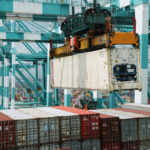A federal judge in Tulsa, Okla., has ordered a new trial in a lawsuit against Ford Motor Co., finding improper conduct by a plaintiff’s attorney and vacating a $15 million jury award to a couple whose son was killed in a 2003 traffic accident.
U.S. Chief District Judge Claire Eagan said the automobile company showed in its post-trial motions that “it was prejudiced by plaintiffs’ counsel’s conduct, and the jury’s unprecedented verdict for noneconomic damages supports this conclusion.”
“Based on the cumulative error in this case and the size of the jury’s verdict, the court has no doubt that the proper remedy is to order a new trial,” she ruled Mar. 20.
Tulsa jeweler Kevin Moody and Veronica Moody filed the lawsuit Nov. 18, 2003, a little more than 10 months after their 18-year-old son, Tyler Moody, died in a rollover crash in Tulsa.
The lawsuit said the Explorer’s roof had “an inadequate roof-crush tolerance,” and that Tyler Moody became trapped in the vehicle with the roof pushing his neck into his chest.
The plaintiffs’ attorney, Clark Brewster, said that the basis for the judge ordering a new trial involved matters “that – for the most part – were completely unobjected to at trial.”
Ford attorney Mary Quinn Cooper said Eagan’s order was proper.
“We’re looking forward to retrying the case on a level playing field,” she said.
The judge set a July 16 trial date. The original verdict was handed down Nov. 20.
“We’re confident that when a jury hears the relevant facts, free from the shadow of abuse cast over the first trial, they will conclude that Ford was not responsible for this tragic accident,” Ford said in a written statement.
Moody lost control of a 1995 Ford Explorer Sport while he was passing another vehicle in a no-passing zone on a curve, according to a Nov. 14 court order by Eagan. The SUV left the road and rolled at least 11/2 times, coming to rest on its roof.
Brewster told the jury that the Explorer’s roof collapsed when the vehicle went through what he termed a relatively slow, easy roll.
In his closing argument, Brewster said the part that gave way was made of “spindly little pieces of metal engineered down to an unacceptable level to save money.”
But Cooper told the jury that the vehicle exceeded federal standards. She said while there was no doubt that Moody was “a great kid,” on the day of the accident he made “bad decisions that had fatal consequences.”
Moody was speeding through the curve, but Brewster argued at the trial that Moody’s speed was irrelevant to the issue of whether the SUV’s roof was defective.
On Jan. 5, Eagan added $3,339,550.68 in prejudgment interest on the $15 million verdict.
Eagan wrote in her order for a new trial that personal attacks on Ford witnesses and attorneys, “along with plaintiffs’ counsel’s improper conduct, leaves this court with a firm conviction that Ford did not receive a fair trial.”
Eagan wrote that during his closing arguments Brewster “blatantly suggested that Ford Explorers were responsible for 10,000 deaths per year, and he had the temerity to compare this improper suggestion to the number of deaths in the Iraq War.”
The judge wrote that this statement alone likely prejudiced Ford’s case and that because it was made in the final portion of Brewster’s closing argument, “Ford had no opportunity to respond or cure any resulting prejudice.”
Brewster subsequently claimed that he “never once” suggested that the number pertained specifically to Ford Explorers.
Brewster said that both sides were zealous during the trial and that ordering a new trial is “insulting” to the jury that heard and considered the evidence.
Information from: Tulsa World, http://www.tulsaworld.com
Was this article valuable?
Here are more articles you may enjoy.

 AI Got Beat by Traditional Models in Forecasting NYC’s Blizzard
AI Got Beat by Traditional Models in Forecasting NYC’s Blizzard  Claims Handling Breakdowns From LA Wildfires One Year on
Claims Handling Breakdowns From LA Wildfires One Year on  Insurance Clubs to Halt Ship War-Risk Cover in Persian Gulf
Insurance Clubs to Halt Ship War-Risk Cover in Persian Gulf  Besieged Berkshire Utility Tries to Rewrite Who Pays for Wildfires
Besieged Berkshire Utility Tries to Rewrite Who Pays for Wildfires 